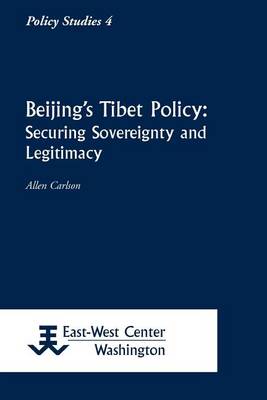Policy Studies
1 total work
This paper examines the main contours of Beijing’s Tibet policy since the start of the reform era (1979 to the present). It argues that throughout this period China’s position on Tibet has always been concerned with defending Chinese sovereignty, more specifically jurisdictional sovereignty, over the region. Since 1979, the ways in which the Chinese acted to secure such rights, however, have varied significantly, in two distinct phases. During the initial phase, in the late 1970s and early 1980s, the Chinese position was marked by the implementation of relatively moderate policies. In the second phase, which began in late 1987, and continues today, the Chinese position on Tibet has been defined by highly critical discursive moves, pointed diplomatic activity, a renewed commitment to use force to silence all opposition to Chinese rule, and the utilization of economic development programs to augment such efforts. This essay contends that three forces were crucial in determining Chinese policy on Tibet during these two periods: the underlying strategic value of Tibet to Beijing within the regional security dynamic, the persistence of historically conditioned, sovereign-centric values within elite circles in China, and the internal and external pressures created by Deng Xiaoping’s “reform and opening” line. The complexity of these factors suggests that understanding how Beijing acts vis-à-vis Tibet requires that students of international relations and security studies, as well as policymakers and activists, look beyond parsimonious explanations and single-faceted policy directions when considering the “Tibet Issue.” This is the fourth publication in Policy Studies, a peer-reviewed East-West Center Washington series that presents scholarly analysis of key contemporary domestic and international political, economic, and strategic issues affecting Asia in a policy relevant manner.
